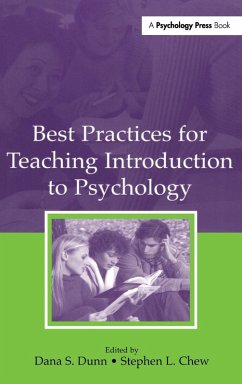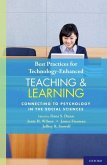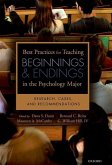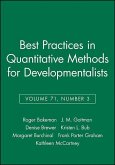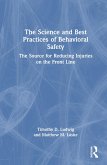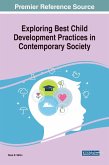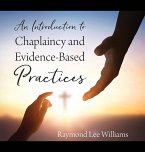Best Practices for Teaching Introduction to Psychology
Herausgeber: Dunn, Dana S.; Chew, Stephen L.
Best Practices for Teaching Introduction to Psychology
Herausgeber: Dunn, Dana S.; Chew, Stephen L.
- Gebundenes Buch
- Merkliste
- Auf die Merkliste
- Bewerten Bewerten
- Teilen
- Produkt teilen
- Produkterinnerung
- Produkterinnerung
This new book provides a scholarly, yet practical approach to the challenges found in teaching introductory psychology: developing the course and assessing student performance; selecting which topics to cover and in how much depth; the effective use of t
Andere Kunden interessierten sich auch für
![Best Practices for Technology-Enhanced Teaching and Learning Best Practices for Technology-Enhanced Teaching and Learning]() Best Practices for Technology-Enhanced Teaching and Learning102,99 €
Best Practices for Technology-Enhanced Teaching and Learning102,99 €![Best Practices for Teaching Beginnings and Endings in the Psychology Major Best Practices for Teaching Beginnings and Endings in the Psychology Major]() Dana DunnBest Practices for Teaching Beginnings and Endings in the Psychology Major50,99 €
Dana DunnBest Practices for Teaching Beginnings and Endings in the Psychology Major50,99 €![Best Practices in Quantitative Methods for Developmentalists, Volume 71, Number 3 Best Practices in Quantitative Methods for Developmentalists, Volume 71, Number 3]() Best Practices in Quantitative Methods for Developmentalists, Volume 71, Number 352,99 €
Best Practices in Quantitative Methods for Developmentalists, Volume 71, Number 352,99 €![The Science and Best Practices of Behavioral Safety The Science and Best Practices of Behavioral Safety]() Timothy D. LudwigThe Science and Best Practices of Behavioral Safety149,99 €
Timothy D. LudwigThe Science and Best Practices of Behavioral Safety149,99 €![Feedback Fundamentals and Evidence-Based Best Practices Feedback Fundamentals and Evidence-Based Best Practices]() Brodie Gregory RiordanFeedback Fundamentals and Evidence-Based Best Practices148,99 €
Brodie Gregory RiordanFeedback Fundamentals and Evidence-Based Best Practices148,99 €![Exploring Best Child Development Practices in Contemporary Society Exploring Best Child Development Practices in Contemporary Society]() Exploring Best Child Development Practices in Contemporary Society260,99 €
Exploring Best Child Development Practices in Contemporary Society260,99 €![An Introduction to Chaplaincy and Evidence-Based Practices An Introduction to Chaplaincy and Evidence-Based Practices]() Raymond Lee WilliamsAn Introduction to Chaplaincy and Evidence-Based Practices21,99 €
Raymond Lee WilliamsAn Introduction to Chaplaincy and Evidence-Based Practices21,99 €-
-
-
This new book provides a scholarly, yet practical approach to the challenges found in teaching introductory psychology: developing the course and assessing student performance; selecting which topics to cover and in how much depth; the effective use of t
Produktdetails
- Produktdetails
- Verlag: Psychology Press
- Seitenzahl: 306
- Erscheinungstermin: 17. Juni 2005
- Englisch
- Abmessung: 235mm x 157mm x 21mm
- Gewicht: 596g
- ISBN-13: 9780805852172
- ISBN-10: 0805852174
- Artikelnr.: 22294177
- Herstellerkennzeichnung
- Libri GmbH
- Europaallee 1
- 36244 Bad Hersfeld
- gpsr@libri.de
- Verlag: Psychology Press
- Seitenzahl: 306
- Erscheinungstermin: 17. Juni 2005
- Englisch
- Abmessung: 235mm x 157mm x 21mm
- Gewicht: 596g
- ISBN-13: 9780805852172
- ISBN-10: 0805852174
- Artikelnr.: 22294177
- Herstellerkennzeichnung
- Libri GmbH
- Europaallee 1
- 36244 Bad Hersfeld
- gpsr@libri.de
Dana S. Dunn, Stephen L. Chew
G.W. Hill
IV
Foreword. D.S. Dunn
S.L. Chew
Preface. D.S. Dunn
S.L. Chew
Grounding the Teaching of Introductory Psychology: Rationale for and Overview of Best Practices. Part 1. Basic Issues.R.A. Griggs
Selecting an Introductory Textbook: They Are Not "All the Same." D.S. Dunn
M.E. Schmidt
S.B. Zaremba
On Becoming a Fox: Covering Unfamiliar Topics in Introductory Psychology. R.A.R. Gurung
D. Daniel
Evidence-Based Pedagogy: Do Text-Based Pedagogical Features Enhance Student Learning? D.C. Appleby
Defining
Teaching
and Assessing Critical Thinking in Introductory Psychology. A. Hackney
J.H. Korn
W. Buskist
Learning to Teach Introductory Psychology: Philosophy and Practice. Part 2. Alternative Approaches to Teaching Introductory Psychology.E. Johnson
J. Carton
Introductory Psychology Without the Big Book. J.E. Trimble
Enriching Introductory Psychology With Race and Ethnicity: Considerations for History of Psychology
Biopsychology
and Intelligence Measurement. R.M. Stoddart
M.J. McKinley
Using Narratives
Literature
and Primary Sources to Teach Introductory Psychology: An Interdisciplinary Approach. D.L. Finley
Teaching Introductory Psychology Online: Active Learning is Not an Oxymoron. T.E. Ludwig
C.W. Perdue
Multimedia and Computer-Based Learning in Introductory Psychology. M.M. Handelsman
Teaching Ethics in Introductory Psychology. Part 3. Assessment Issues. R.A. Smith
A.C. Fineburg
Standards and Outcomes: Encouraging Best Practices in Teaching Introductory Psychology. J.S. Halonen
C.M. Harris
D.A. Pastor
C.E. Abrahamsom
C.J. Huffman
Assessing General Education Outcomes in Introductory Psychology. Part 4. Focus on Student Learning.S.L. Chew
Seldom in Doubt but Often Wrong: Addressing Tenacious Student Misconceptions. V.A. Benassi
G.S. Goldstein
Students' Beliefs About Paranormal Claims: Implications for Teaching Introductory Psychology. C.E. Abrahamson
Motivating Students Through Personal Connections: Storytelling as Pedagogy in Introductory Psychology. Part 5. Last Words.D.G. Myers
Teaching Tips From Experienced Teachers: Advice for Introductory Psychology.
IV
Foreword. D.S. Dunn
S.L. Chew
Preface. D.S. Dunn
S.L. Chew
Grounding the Teaching of Introductory Psychology: Rationale for and Overview of Best Practices. Part 1. Basic Issues.R.A. Griggs
Selecting an Introductory Textbook: They Are Not "All the Same." D.S. Dunn
M.E. Schmidt
S.B. Zaremba
On Becoming a Fox: Covering Unfamiliar Topics in Introductory Psychology. R.A.R. Gurung
D. Daniel
Evidence-Based Pedagogy: Do Text-Based Pedagogical Features Enhance Student Learning? D.C. Appleby
Defining
Teaching
and Assessing Critical Thinking in Introductory Psychology. A. Hackney
J.H. Korn
W. Buskist
Learning to Teach Introductory Psychology: Philosophy and Practice. Part 2. Alternative Approaches to Teaching Introductory Psychology.E. Johnson
J. Carton
Introductory Psychology Without the Big Book. J.E. Trimble
Enriching Introductory Psychology With Race and Ethnicity: Considerations for History of Psychology
Biopsychology
and Intelligence Measurement. R.M. Stoddart
M.J. McKinley
Using Narratives
Literature
and Primary Sources to Teach Introductory Psychology: An Interdisciplinary Approach. D.L. Finley
Teaching Introductory Psychology Online: Active Learning is Not an Oxymoron. T.E. Ludwig
C.W. Perdue
Multimedia and Computer-Based Learning in Introductory Psychology. M.M. Handelsman
Teaching Ethics in Introductory Psychology. Part 3. Assessment Issues. R.A. Smith
A.C. Fineburg
Standards and Outcomes: Encouraging Best Practices in Teaching Introductory Psychology. J.S. Halonen
C.M. Harris
D.A. Pastor
C.E. Abrahamsom
C.J. Huffman
Assessing General Education Outcomes in Introductory Psychology. Part 4. Focus on Student Learning.S.L. Chew
Seldom in Doubt but Often Wrong: Addressing Tenacious Student Misconceptions. V.A. Benassi
G.S. Goldstein
Students' Beliefs About Paranormal Claims: Implications for Teaching Introductory Psychology. C.E. Abrahamson
Motivating Students Through Personal Connections: Storytelling as Pedagogy in Introductory Psychology. Part 5. Last Words.D.G. Myers
Teaching Tips From Experienced Teachers: Advice for Introductory Psychology.
G.W. Hill
IV
Foreword. D.S. Dunn
S.L. Chew
Preface. D.S. Dunn
S.L. Chew
Grounding the Teaching of Introductory Psychology: Rationale for and Overview of Best Practices. Part 1. Basic Issues.R.A. Griggs
Selecting an Introductory Textbook: They Are Not "All the Same." D.S. Dunn
M.E. Schmidt
S.B. Zaremba
On Becoming a Fox: Covering Unfamiliar Topics in Introductory Psychology. R.A.R. Gurung
D. Daniel
Evidence-Based Pedagogy: Do Text-Based Pedagogical Features Enhance Student Learning? D.C. Appleby
Defining
Teaching
and Assessing Critical Thinking in Introductory Psychology. A. Hackney
J.H. Korn
W. Buskist
Learning to Teach Introductory Psychology: Philosophy and Practice. Part 2. Alternative Approaches to Teaching Introductory Psychology.E. Johnson
J. Carton
Introductory Psychology Without the Big Book. J.E. Trimble
Enriching Introductory Psychology With Race and Ethnicity: Considerations for History of Psychology
Biopsychology
and Intelligence Measurement. R.M. Stoddart
M.J. McKinley
Using Narratives
Literature
and Primary Sources to Teach Introductory Psychology: An Interdisciplinary Approach. D.L. Finley
Teaching Introductory Psychology Online: Active Learning is Not an Oxymoron. T.E. Ludwig
C.W. Perdue
Multimedia and Computer-Based Learning in Introductory Psychology. M.M. Handelsman
Teaching Ethics in Introductory Psychology. Part 3. Assessment Issues. R.A. Smith
A.C. Fineburg
Standards and Outcomes: Encouraging Best Practices in Teaching Introductory Psychology. J.S. Halonen
C.M. Harris
D.A. Pastor
C.E. Abrahamsom
C.J. Huffman
Assessing General Education Outcomes in Introductory Psychology. Part 4. Focus on Student Learning.S.L. Chew
Seldom in Doubt but Often Wrong: Addressing Tenacious Student Misconceptions. V.A. Benassi
G.S. Goldstein
Students' Beliefs About Paranormal Claims: Implications for Teaching Introductory Psychology. C.E. Abrahamson
Motivating Students Through Personal Connections: Storytelling as Pedagogy in Introductory Psychology. Part 5. Last Words.D.G. Myers
Teaching Tips From Experienced Teachers: Advice for Introductory Psychology.
IV
Foreword. D.S. Dunn
S.L. Chew
Preface. D.S. Dunn
S.L. Chew
Grounding the Teaching of Introductory Psychology: Rationale for and Overview of Best Practices. Part 1. Basic Issues.R.A. Griggs
Selecting an Introductory Textbook: They Are Not "All the Same." D.S. Dunn
M.E. Schmidt
S.B. Zaremba
On Becoming a Fox: Covering Unfamiliar Topics in Introductory Psychology. R.A.R. Gurung
D. Daniel
Evidence-Based Pedagogy: Do Text-Based Pedagogical Features Enhance Student Learning? D.C. Appleby
Defining
Teaching
and Assessing Critical Thinking in Introductory Psychology. A. Hackney
J.H. Korn
W. Buskist
Learning to Teach Introductory Psychology: Philosophy and Practice. Part 2. Alternative Approaches to Teaching Introductory Psychology.E. Johnson
J. Carton
Introductory Psychology Without the Big Book. J.E. Trimble
Enriching Introductory Psychology With Race and Ethnicity: Considerations for History of Psychology
Biopsychology
and Intelligence Measurement. R.M. Stoddart
M.J. McKinley
Using Narratives
Literature
and Primary Sources to Teach Introductory Psychology: An Interdisciplinary Approach. D.L. Finley
Teaching Introductory Psychology Online: Active Learning is Not an Oxymoron. T.E. Ludwig
C.W. Perdue
Multimedia and Computer-Based Learning in Introductory Psychology. M.M. Handelsman
Teaching Ethics in Introductory Psychology. Part 3. Assessment Issues. R.A. Smith
A.C. Fineburg
Standards and Outcomes: Encouraging Best Practices in Teaching Introductory Psychology. J.S. Halonen
C.M. Harris
D.A. Pastor
C.E. Abrahamsom
C.J. Huffman
Assessing General Education Outcomes in Introductory Psychology. Part 4. Focus on Student Learning.S.L. Chew
Seldom in Doubt but Often Wrong: Addressing Tenacious Student Misconceptions. V.A. Benassi
G.S. Goldstein
Students' Beliefs About Paranormal Claims: Implications for Teaching Introductory Psychology. C.E. Abrahamson
Motivating Students Through Personal Connections: Storytelling as Pedagogy in Introductory Psychology. Part 5. Last Words.D.G. Myers
Teaching Tips From Experienced Teachers: Advice for Introductory Psychology.

